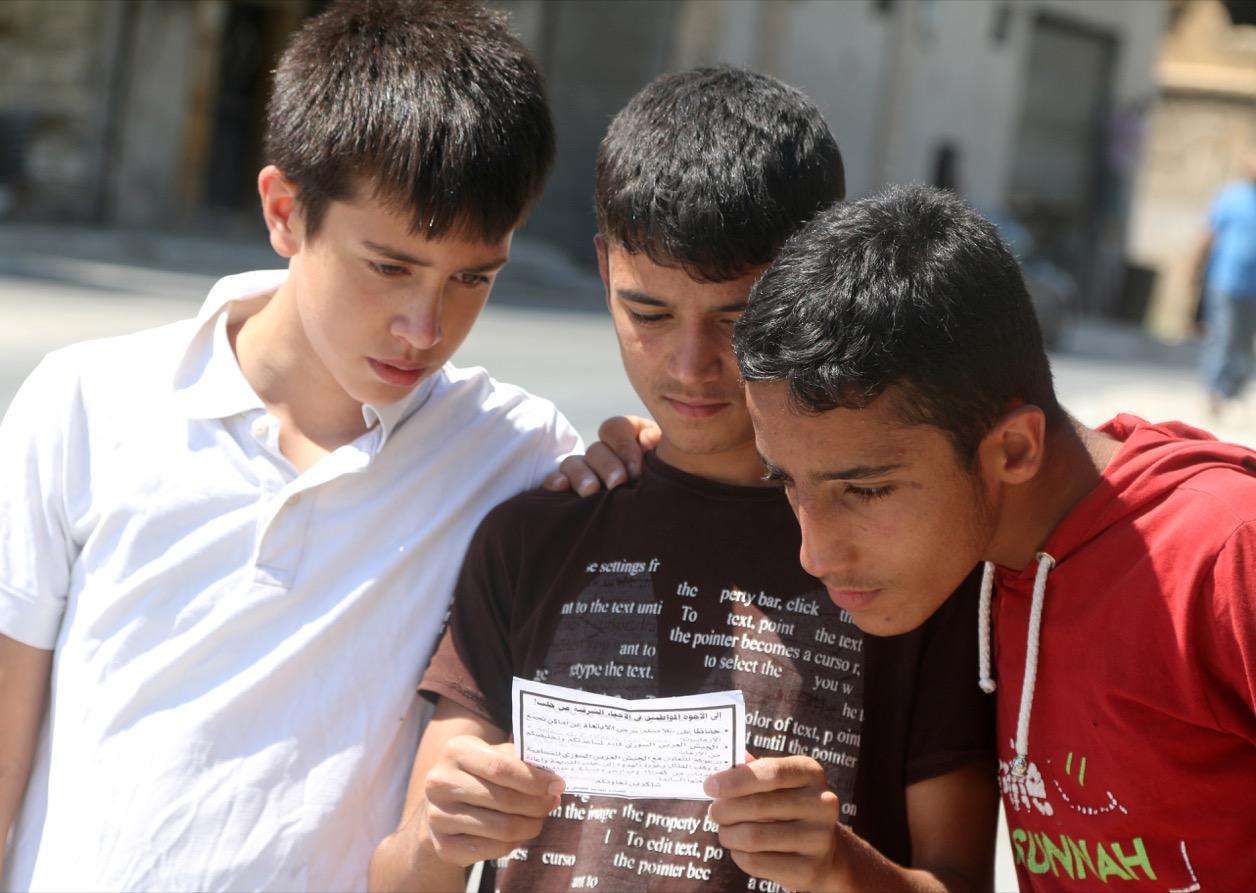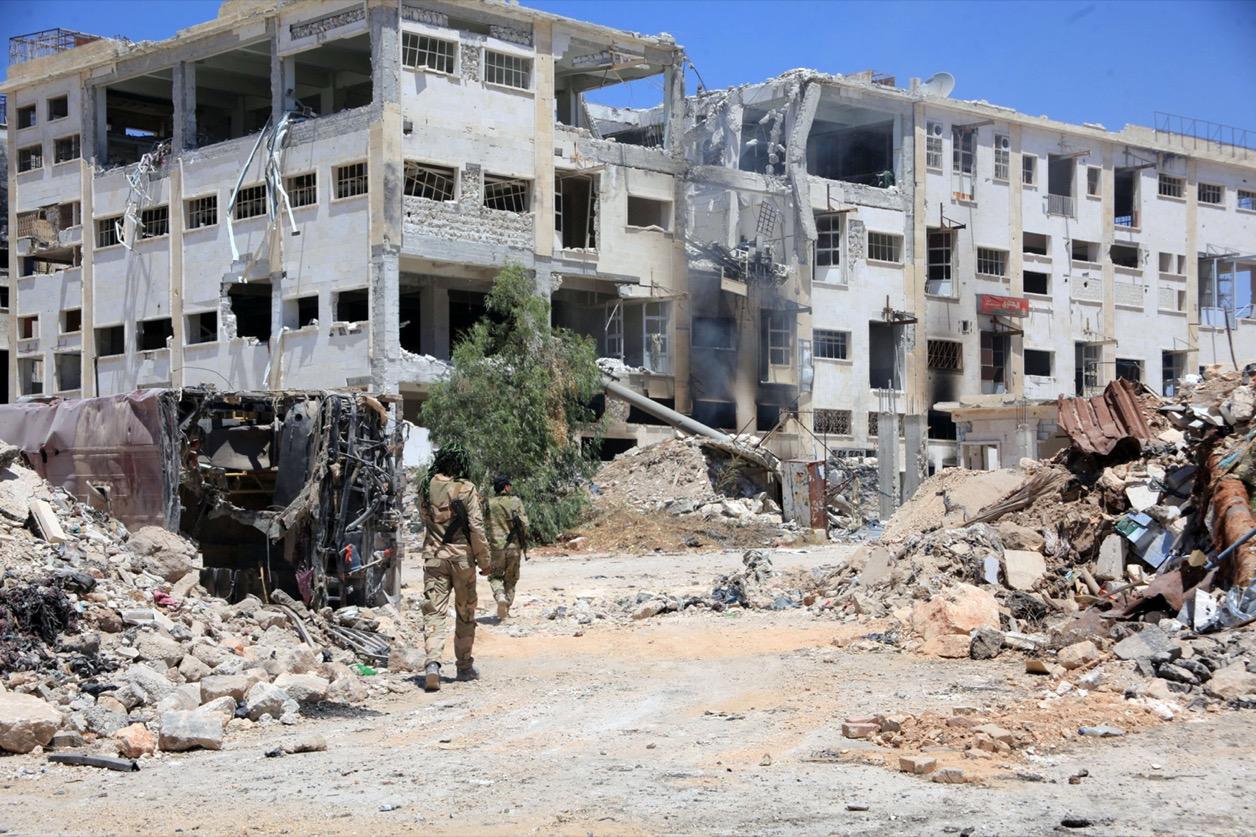Surrounded, hungry and afraid, many in Aleppo, Syria still refuse to leave
Forces loyal to Syrian President Bashar al-Assad walk past rubble after they advanced on the southern side of the Castello road in Aleppo, Syria.
The Syrian army and its allies have eastern Aleppo surrounded. Besieged neighborhoods are crumbling under a barrage of daily airstrikes, leaving residents terrified and hungry.
Still, many are refusing to leave.
“No one is thinking about leaving,” said Ahmad, an activist in the city who did not want to give his full name. “People are too desperate for that. They think this is the only way of fighting for their home.”
Syrian government forces, backed by Russian airstrikes, moved farther into the rebel-held parts of the city on Thursday. They're closing in on the roughly 300,000 civilians and few thousand rebel fighters who have stayed behind.
Russia’s Defense Minister Sergei Shoigu announced the beginning of a “large-scale humanitarian operation together with the Syrian government to help civilians in Aleppo.” Meanwhile, video footage released by the Syrian army showed tanks entering the eastern district of Bani Zaid after forcing rebels out.
Syrian President Bashar al-Assad has offered an amnesty to rebel fighters who lay down their arms in the next three months.
But residents living in rebel-held areas feel they have a stark choice: leave the city and risk arrest or worse at the hands of Assad’s forces, or stay and face starvation.
The situation in eastern Aleppo has deteriorated significantly since the army cut off the area's last remaining supply route earlier this month. Food is scarce and medical facilities have been repeatedly bombed from the air. In Aleppo's government-controlled western area, barrages of rudimentary shells fired by rebels have killed civilians.
Ismail al-Abdullah, 28, another activist in Aleppo, said people in the city are becoming desperate as food becomes harder to come by.
“It is getting worse day after day. Today, the streets are empty. There are no people. The market is closed completely. There are no vegetables. All the people who are in the street are asking for food,” said Abdullah.
"All the people who are living in Aleppo city now, they are the poorest, they are the neediest," he said. "Most of them are orphans, widows, the people who are injured seriously and need treatment. Most of them were depending on the NGOs for food, now we don’t have any food.”
Meanwhile, airstrikes continue to rain down.
“The killing is happening every day. It hasn’t stopped. Just yesterday we had three people killed.”
Ahmad, the activist also in Aleppo, said there were “many airstrikes every day.”
“Whole families have died under wrecks and we could not take them out,” he added.
The European Union warned that the situation in eastern Aleppo could turn into “the largest humanitarian tragedy of this conflict, which has already brought so much suffering.”

The Syrian government’s advances spell bad news for the armed opposition to Assad. Once the country's industrial heartland, Aleppo has for four years been a key front line in the battle to remove Assad from power. Since Russia stepped into the conflict, Aleppo and large parts of northern Syria have come under heavy bombardment. That's allowed Assad's forces to capture more territory.
Losing a foothold in Syria’s largest city would be a devastating setback for the fractured mix of rebel alliances in the country’s north.
US Secretary of State John Kerry said on Tuesday that Washington and Moscow have made progress toward resuming peace talks between the warring sides in Syria. That's despite Russia and the US supporting opposite sides. A State Department statement following talks between Kerry and his counterpart, Sergei Lavrov, in Geneva called for Russia to observe the "cessation of hostilities" they agreed on in February. The cessation excludes combat with extremist organizations like Jabhat al-Nusra and the Islamic State group.
The US pressed Russia on the need to comply with "the terms of the cessation of hostilities — particularly in Aleppo city — as well as the need to improve humanitarian access, as positive progress in these areas would significantly improve the prospects for successful talks," the statement said.
However, the latest advance in Aleppo seems to suggest Russia chose not to take that advice.
For now, Abdullah and many others are hoping the siege is broken. The prospect of facing Assad's forces, who have been bombing eastern Aleppo for so long, makes many fear for the worst.
“No one can imagine this actually. Maybe something very bad will happen for the people who are in Aleppo now,” he said.
“We are waiting for something to happen. We are waiting for someone to break the siege, we are waiting for the international community to do something.”
